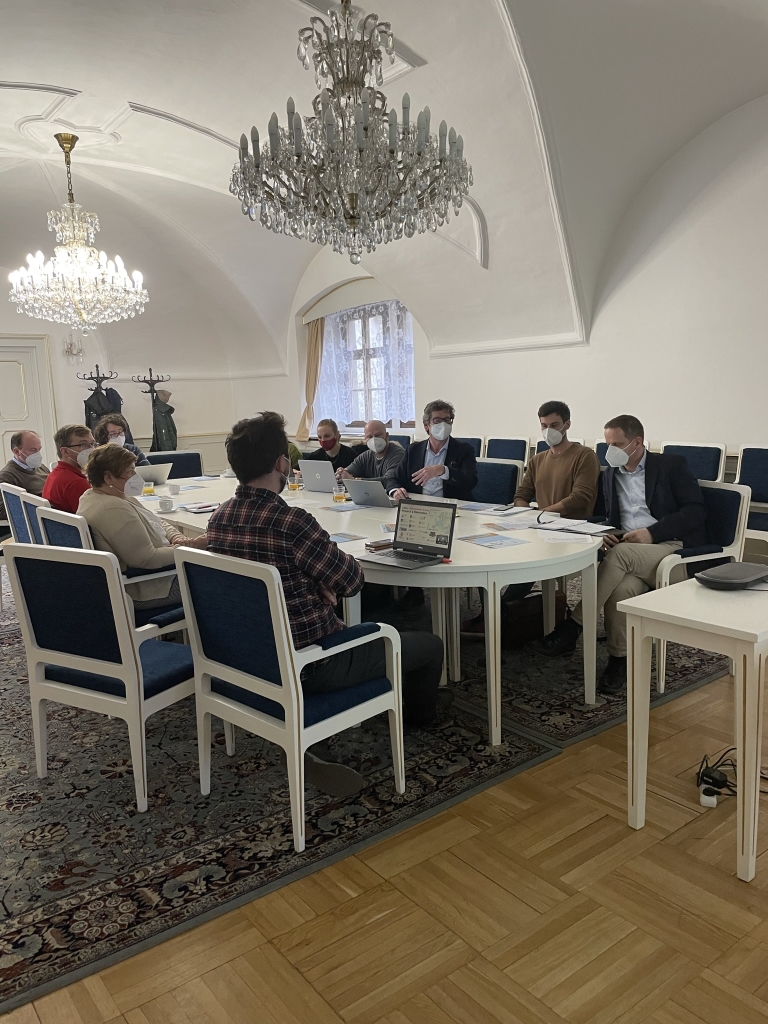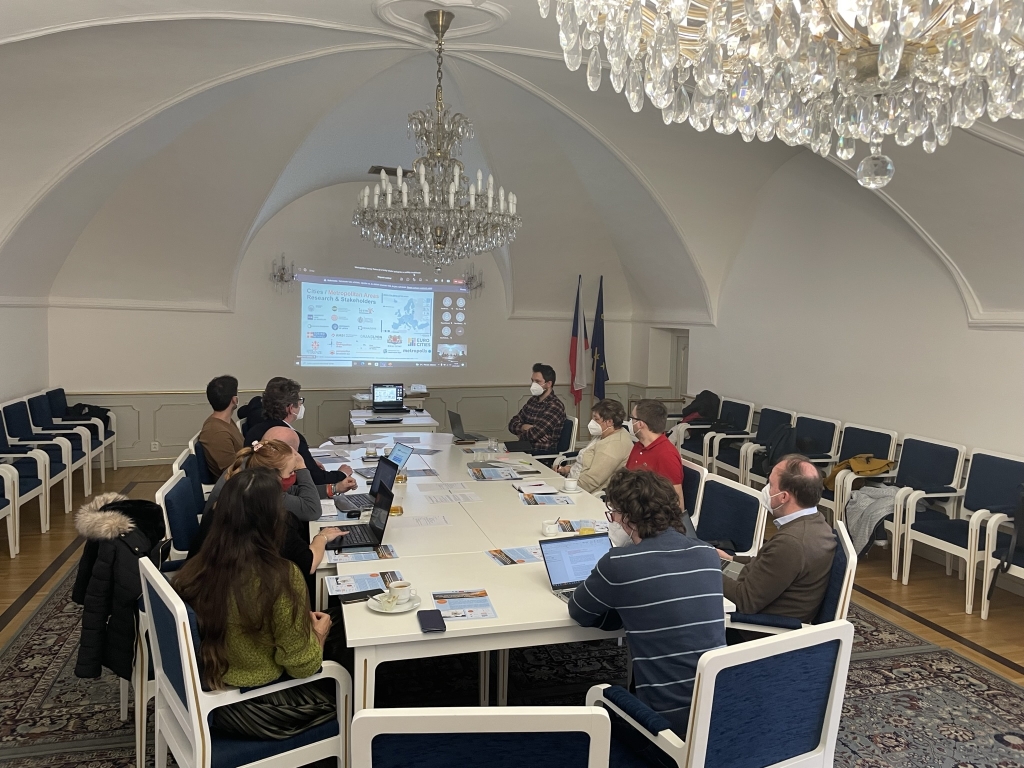How to strengthen and leverage the role of metropolitan areas in the development, management and implementation of cohesion policy? Is there a need to change the current legislation? And how do metropolitan areas in the Czech Republic differ from those in Europe? All this was discussed by national, local and academic representatives during a regional peer-learning workshop held on 27 January 2022 in Brno. The meeting presented the results of the international ESPON METRO project, which evaluated and compared the role and impact of EU cohesion policy on development in nine European metropolitan areas. At the same time, the project focused on how metropolitan areas can contribute to achieving cohesion policy objectives. The project brought together nine metropolitan areas: Brno, Barcelona, Brussels, Florence, Gdansk-Gdynia-Sopot, Lisbon, Lyon, Riga and Turin.
“I am glad that the city of Brno could be part of the ESPON METRO project. Cohesion policy is a very important part of the European Union’s activities and has an impact on the development of not only the city of Brno but also the entire metropolitan area. The ITI instrument, which has enabled Brno to draw on allocated funds in the operational programmes, has proved to be a very successful territorial instrument for deepening metropolitan cooperation. Thanks to it, we have implemented almost 120 projects in our metropolitan area. I must mention especially its role in the creation of urban transport infrastructure or in the field of social activities,” said Tomáš Koláčný, Deputy Mayor of Brno.
Among other things, the seminar focused on the impact of cohesion policy on strengthening governance and cooperation in metropolitan areas. The research team represented by professor Luděk Sýkora from Charles University introduced the main results and findings of the international project, including an assessment of the level of metropolitan cooperation and governance in the Brno Metropolitan Area in the context of international comparison.


“This is the result of several months of analytical work by a team of experts who are dedicated to the topic of metropolitan cooperation. The research has highlighted the need to reinforce the importance of metropolitan areas and agglomerations as key locations for the implementation of national and EU public policies. At the same time, it is essential to develop metropolitan cooperation mechanisms involving a wide range of local actors in order to strengthen metropolitan governance and cooperation as a separate, autonomous and independent from EU cohesion policy. This requires, among other things, strengthening the role of metropolitan governance and leadership, and finding ways to create a common metropolitan fund for the implementation of metropolitan strategic priorities from its own resources, of course together with support from national sources and EU funds”, noted Luděk Sýkora from Charles University.
The research team also mentioned in its summary that the current attention paid to metropolitan areas in the Czech Republic does not correspond to their potential for the development of the Czech Republic. It also pointed out that the institutionalisation of metropolitan cooperation is a condition for further systematic development of the Brno Metropolitan Area. It is necessary to create an adequate legal framework for metropolitan administration.
“The Ministry of Regional Development perceives metropolitan areas, which act as functional areas, as the main poles of development in the Czech Republic. The newly formed government proclaimed support for metropolitan cooperation in its Programme Statement of the Government. This is an extremely important milestone and at the same time a statement of support for our common intentions and efforts. The benefits that metropolitan cooperation generates confirm me in the fact that it is necessary to continue with the established cooperation and to create legislative and favourable conditions for its development at the level of the entire Czech Republic. This topic is not only in the interest of large cities and municipalities in the hinterland but also of regions and the whole Czech Republic,” said Marie Zezůlková, Director of the Regional Policy Department of the Ministry for Regional Development of the Czech Republic.
The seminar was organised by the European Interregional Cooperation Programme ESPON (European Monitoring Network for Territorial Development and Cohesion), Charles University, the Ministry of Regional Development of the Czech Republic and the Brno Metropolitan Area. The meeting, which was held in a hybrid form (participants could attend on site or connect online), was attended by about 50 participants.
For more information on the ESPON METRO project, please visit: ESPON METRO | The role and future perspectives of Cohesion Policy in the planning of Metropolitan Areas and Cities | ESPON. On this page, you will find the international study, policy recommendations and specific analyses of the individual metropolitan areas, including Brno.
Presentations from the meeting (only in Czech):
Metropolitní rozvoj: Potenciály a limity lokální spolupráce a politiky soudržnosti – Luděk Sýkora
Perspektivy role metropolitních oblastí v naplňování rozvojových priorit České republiky a Evropské unie pohledem MMR – Marie Zezůlková
Stanovisko Brněnské metropolitní oblasti k možnostem institucionálního rámce a praktik metropolitní spolupráce– Petr Šašinka
PS ESPON 2030/PS ESPON 2020 – Milada Hroňková
Register your e-mail address to receive regular updates from the Brno Metropolitan Area.